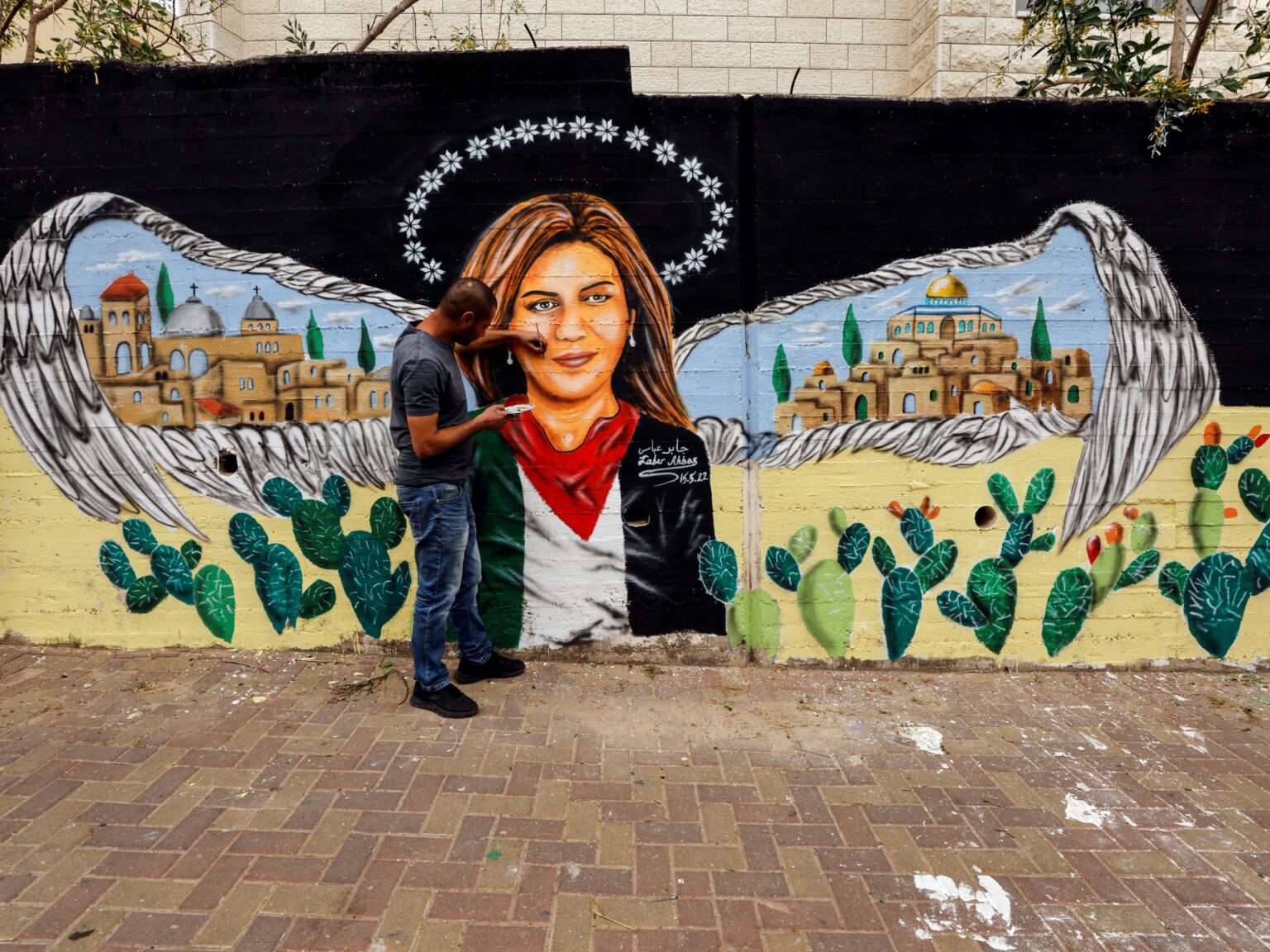Global Courant 2023-05-11 11:28:41
Moments after Washington Post columnist David Ignatius began an interview with US Secretary of State Antony Blinken to commemorate World Press Freedom Day, two polite, determined souls, clad in pink, walked on stage with signs.
The man and woman wanted to remind Ignatius and Blinken and their general public of the fate of a publisher and a journalist – one imprisoned, the other murdered – whom the demonstrators knew would, I suspect, be forgotten by the columnist and the diplomat.
“Excuse us,” said the female protester, “we cannot use this day without calling for the freedom of Julian Assange.”
The other protester shouted as he and his accomplice were dragged away: “Not a word about Shireen Abu Akleh, who was killed by the Israeli occupation forces in Palestine.”
He was right.
When the interview resumed, Ignatius offered no question, much less an admission, about the incarceration of the Wikileaks founder in a British high-security prison or the assassination of veteran Al Jazeera reporter Abu Akleh by an Israeli sniper in Jenin. May 11, 2022.
This was no mistake. It was a choice by the subservient Ignatius not to make his guest uncomfortable by asking him why he had done nothing to hold the Israeli killer or the government they served accountable for Israel’s summary execution of the Palestinian-American journalist. .
The horrific circumstances of Abu Akleh’s assassination are hard to forget. She was wearing a vest with “PRESS” written on it in large, bold, white letters. She was in Jenin early that May morning with an Al Jazeera television crew covering yet another Israeli incursion into the besieged Palestinian refugee camp. Abu Akleh knew the refugees and they knew her.
As she walked down a narrow alleyway, there was a brief burst of gunfire. Seconds later, Abu Akleh lay face down as a frenzied young colleague tried to reach her.
A slew of extensive investigations by various U.S. and foreign news organizations, included The Washington Post all came to the same conclusion: Abu Akleh was more than likely killed by an Israeli soldier.
Apparently, Ignatius remembered none of it. Instead, he asked Blinken what steps he was taking to secure the release of two white American journalists who were being held by Russia and Syria.
In fact, Blinken said he was doing everything he could to return the two men to their concerned families.
Ignatius thanked and applauded the Secretary of State for his efforts. Blink smiled.
I don’t think Ignatius remembered Shireen Abu Akleh’s murder or the extensive coverage in his newspaper because, despite being an American, she was not considered a bona fide citizen like the two other reporters whose plight he described at the time. and took some effort to address.
Abu Akleh was a Palestinian. And in the end, Palestinians don’t matter to much of the American press and diplomatic establishment. They are forgettable.
Clearly, Ignatius and Blinken were also disinclined to insult or criticize a rogue state they’ve spent their careers defending and protecting, even though it has been found responsible for the state-sanctioned assassination attempt on an acclaimed American reporter.
So, predictably, Ignatius and Blinken spent much of their talk bashing Russia and Syria and their criminal attack on journalism and journalists. Mentioning Israel’s crimes against journalists was verboten in this context and, I think, would have been clumsy and inappropriate.
Not only was Abu Akleh forgotten, but so was Israel’s bombing of parts of the building that housed journalists from Al Jazeera and the Associated Press in Gaza in 2021.
Sadly, Ignatius and Blinken are not the only ones, it seems, to forget these misdeeds and the profound and deadly human consequences of Israel’s willful actions.
In preparation for this column, I wrote an email to the deans, directors, as well as several professors and journalists associated with 26 of the top journalism schools in the US, asking how the programs were designed to mark the anniversary of the assassination. to mark Abu Akleh or to honor Abu Akleh’s assassination.
More than 10 days later, only three admins have answered my question.
It’s hard to draw concrete conclusions about why so many journalist-turned-educators haven’t responded to a short, simple question about the gruesome death of a reporter who devoted her life and work to telling the truth about humanity from the Palestinians to the world. and the cruelty, violence and injustice inflicted upon them by their occupiers over generations.
The charity explanation may be that they were too busy or were prevented from responding by a burdensome bureaucracy. The less charitable explanation is that Abu Akleh had conveniently faded from view over time—if she was remembered at all.
History and my instincts tell me that the latter is closer to the truth.
Anyway, one college principal who did reply wrote that his school had “decided not to hold an event because the semester is over in May.” Still, he assured me that “some of us who teach international journalism refer to her tragic death and discuss attacks against the press.”
Another offered the same slack line. “At the moment we are not planning any events,” she wrote, “because it is the time of our graduation and classes will not take place, but know (sic) it is definitely a topic of discussion in our ethics classrooms and other electives.”
The brutal, deliberate murder of an American journalist has been reduced to a “tragic event” and “subject to debate”.
Good to know.
As far as I can tell, only Columbia University’s Simon and June Li’s Center for Global Journalism hosted an event — the May 1 screening of the landmark film, The Killing of Shireen Abu Akleh — followed by a “conversation” with the journalists who made the documentary.
I asked renowned New York Times journalist and professor Azmat Kahn why Columbia University felt it necessary to commemorate Abu Akleh.
Here’s what she wrote: “(Shireen’s) legacy is vast – from the countless women and girls in the Middle East she has inspired over many years, to her relentless body of work that bears witness and tells the stories of those who go unheard. But the assassination of Abu Akleh has also raised serious questions about threats to press freedom, and in particular how the US government protects and holds American journalists accountable when they are killed.”
Indeed.
Like the unscrupulous amnesia of David Ignatius, it is a shame and a blemish that other American colleges and the many journalists who populate them have not followed suit, either to pause to acknowledge Shireen Abu Akleh or to demand answers from Minister Blinken about the murder of one of their own.
The views expressed in this article are those of the author and do not necessarily reflect the editorial view of Al Jazeera.







